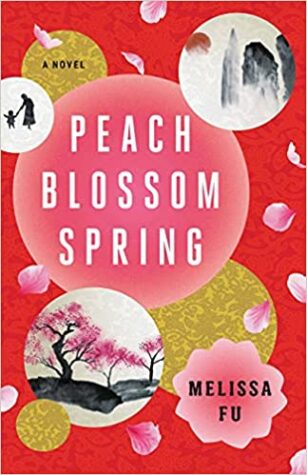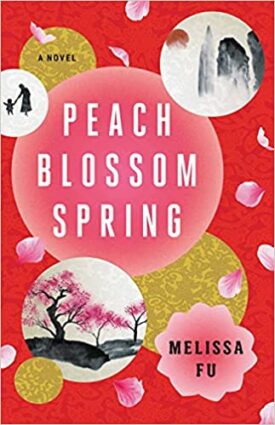
“Within every misfortune there is a blessing and within every blessing, the seeds of misfortune, and so it goes, until the end of time.”—Melissa Fu, Peach Blossom Spring.
Melissa Fu’s Peach Blossom Spring is a mosaic of survival and identity, stitching together a story across oceans and generations. Through the eyes of Meilin and her son Renshu, later known as Henry Dao, we experience the upheaval of war and the tension between embracing the future and honoring the past.
Meilin charts a course through a China inflamed by war and political upheaval, her resilience leaping off the page. Fu paints Meilin with a masterful touch—she’s not just a character but a force, carving out safety in a world where security is as fleeting as the wind. The narrative doesn’t just recount her journey; it immerses you in the very pulse of her life’s rhythm, beat by beat.
Henry’s tale in America is one of silent battles—a man shaped by the history he yearns to forget, yet one that defines every silent space between him and his daughter. The withholding of his past is a second exile, a barrier as formidable as any ocean. Henry embodies a struggle known to many: the desire to shield the next generation from past horrors while inadvertently leaving them unanchored to their heritage.
This novel doesn’t simply traverse the physical distances between China and America; it explores the internal landscapes of its characters. It’s an exploration that sometimes moves at a breakneck pace, perhaps at the cost of deeper suspense and intricacy. Yet, this rapid progression mirrors the turbulence of the times, a life where moments and decisions come as swiftly as they go.
Blossom Spring resonates with the dissonance of Meilin’s staunch survivalism against Henry’s self-imposed cultural amnesia. It speaks to the immigrant experience not as a single event but a continual process of negotiation, with identity, with history, and with the notion of home. Fu crafts a narrative that’s not only a reflection of a family’s lineage but also a commentary on the complexities of assimilation and the indelible imprint of one’s origins.
While the novel’s tempo can sometimes outpace its narrative depth, it remains an interesting exploration of what people endure in the name of hope and the silent legacies they carry. Fu’s Peach Blossom Spring is a debut that is both a witness to history and an intimate family portrait. So interesting! 4 stars.
** Thanks to NetGalley and the publisher for a comp of this book. The opinions expressed are my own.
